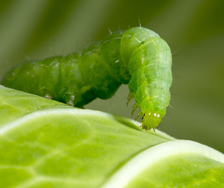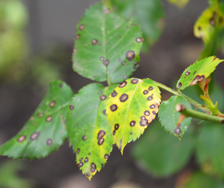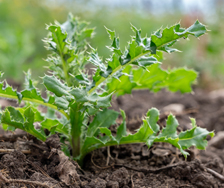Yates Account
Join now
Create a Yates account today!
Sign up to join the Yates Garden Club for monthly e-mails packed with seasonal inspiration, tips for success & exclusive promotions.
Plus if you’re a Garden Club member you can take part in the Yates Growing Community - a blog to share successes, get advice & win prizes in fun challenges along the way!

Forgot password
Enter the email address associated with your account, and we'll email you a new password.

Search for a solution by browsing through the Problem categories below. You'll find easily identifiable images of common pests, weeds, diseases or damage, to give you a positive ID.
Once you've made a diagnosis, we'll introduce you to the best solution.
Not all plant problems are caused by insects or diseases. Sometimes an unhealthy plant will be suffering from a nutrient deficiency, or even too much of a particular nutrient. Nutrient imbalances often manifest as discoloured or distorted foliage.
The following list suggests some possibilities to consider. There are many different problems that show similar symptoms, so it's worth eliminating the other possibilities before you kill your plants with kindness!
- First, search for actual evidence of insect pests, or disease. If you've seen the culprit, you can be confident in your diagnosis.
- Foliage discoloration and stunted plants can be caused by soil that's too wet, drains poorly, or too compacted for healthy root growth.
- Extreme cold (or heat) will slow down plant growth. Adverse weather can have a drastic effect on flowering and 'fruit set'.
- Too much fertiliser can injure plants. Too much of a good thing can cause 'fertiliser burn' - your plants may look scorched, or wilted, despite the soil being moist.
- Like humans, plants require a mix of nutrients to remain healthy. Nutrients that are needed in large amounts are called macronutrients. Plants extract macronutrients from soil. If the soil doesn't contain enough of, or the right blend of macronutrients, gardeners need to top it up with fertiliser.
- The 'big three' macronutrients are nitrogen, phosphorus and potassium (NPK). Comparing plant and human nutrition, NPK plays a roughly similar role to carbs, protein and fat. Most fertilisers contain a well-balanced ratio of these nutrients; if you stick to the label instructions your plants will remain very happy. Secondary plant macronutrients include calcium, magnesium and sulfur.
- Nutrients that are only needed in tiny trace amounts are called micronutrients. For plants, these are analogous to vitamins for humans. Plant micronutrients include boron, chlorine, copper, iron, manganese, molybdenum and zinc. It's quite common for sad-looking plants to be suffering from a micronutrient deficiency, so they'll often respond positively if you apply a plant tonic.



















Share
Share this article on social media